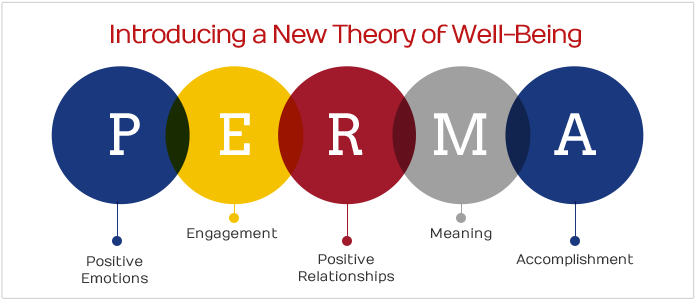My Day 11 of Positive Psychology:
Wellbeing, Nature, and Smores:
For Positive Psychology class today, we traveled to Vestamager Metro station and walked through some nature grounds. We first walked brought the supplies to the camp/bonfire grounds that used to be military grounds with live grenades. Luckily for us, the grounds were safe as long as we do not go digging. Next, we went walking through the marsh area and climb the highest hill. Our Danish guide told us that the grounds used to be under the ocean, was pumped out, and now is wild, nature grounds with forests, rare flowers, and wild animals (deer, cows). Next, we were led back to the camp grounds, cut some fire wood, and roasted some dough. It was good with jam, marshmallows, and chocolate. After the great social bonding time with our Positive Psychology class, we took many group photos and again went back to sit back on the hill to wrap up the class. From our last group discussion and reflection time, I have learned a lot about positive psychology. I did not know what positive psychology was and did not realize that it was such a new field of study. Also, I enjoyed the many field trips and learning about wellbeing. Overall, positive psychology class was such a great opportunity to meet new people, experience new culture, learn a new subject, learn more about myself, and enjoy life with so many great people, teachers, and friends.
#IlovePositivePsychClassSummerS12015 #CoolVibeTribe #StudyAbroadRocksMySocks #Denmarkforthewin
Friday, June 12, 2015
Thursday, June 11, 2015
Day 10 of Positive Psych
My Day 10 of Positive Psychology:
Group Presentations and so much more...
In class today, we listened to all the presentations about wellbeing in a cross-cultural context, specifically between the United States and Denmark. The topics covered were dating culture, environmental consciousnesses, drinking culture, tax system, body image, and Christiania land. I found it very interesting to learn about all the different topics and all the unique discussion activities, such as the speed dating, drinking "water" game, gummy sharing, and drawing pictures. One of the presentations that I found was interesting was the comparison between Danish and American dating cultures. I found it interesting that the group of girls all got tinder accounts in Denmark, got a lot of 'swipe rights', and were able to ask dating questions from the source. I am not surprised by the straightforwardness and aggressiveness they got on Tinder for responses. Guys across all cultures are very persistent, and dating online apps are easy methods to be resolute/fixed on getting a date/keep a conversation going with a girl. The speed dating activity was a clever group discussion activity, and I have done similar ice breakers in college too. Overall, I am impressed by everyone's presentations and have a great, memorable time in Positive Psychology (Copenhagen, Denmark) with the coolest kids on the block.
Group Presentations and so much more...
In class today, we listened to all the presentations about wellbeing in a cross-cultural context, specifically between the United States and Denmark. The topics covered were dating culture, environmental consciousnesses, drinking culture, tax system, body image, and Christiania land. I found it very interesting to learn about all the different topics and all the unique discussion activities, such as the speed dating, drinking "water" game, gummy sharing, and drawing pictures. One of the presentations that I found was interesting was the comparison between Danish and American dating cultures. I found it interesting that the group of girls all got tinder accounts in Denmark, got a lot of 'swipe rights', and were able to ask dating questions from the source. I am not surprised by the straightforwardness and aggressiveness they got on Tinder for responses. Guys across all cultures are very persistent, and dating online apps are easy methods to be resolute/fixed on getting a date/keep a conversation going with a girl. The speed dating activity was a clever group discussion activity, and I have done similar ice breakers in college too. Overall, I am impressed by everyone's presentations and have a great, memorable time in Positive Psychology (Copenhagen, Denmark) with the coolest kids on the block.
Wednesday, June 10, 2015
Day 9 of Positive Psych
My Day 9 of Positive Psychology: "The Danes are Coming feat. The Lonely Island"
For today's class, we broke up into our study groups and went through a preparation for the arrival of the Danes workshop. First, we created a poster of the objects that we thought contributed to Danish wellbeing, like Denmark flag, being social, happiness, beer, bikes, family, friends, and environment. For the Hofstede model, we compared and contrasted the United States and Denmark on the following categories (see picture for results): high vs. low power distance, collectivism vs. individualism, high vs. low uncertainty avoidance, long vs. short term, and masculine vs. feminine. Third we thought of questions and the cultural likert scale questions for our Danish visitors regarding recycling and Eco-friendly ideas. Lastly considering the lonely island scenario, we asked our Danish guests and other groups to think about the situation of having one leader (dictatorship) among the survivors or a equal democracy amongst everyone.
When our Danish guests arrived, we named ourselves the "Cool Vibe Tribe". For the lonely island situation, we decided to bring a shaving mirror, 20L canister of water, alcohol still, 5 m of clear plastic, and fishing tackle. We also decided that our society would be a democracy, avoid pregnancy, and to stretch out the food supply. With our Danish guests, Neil? and Anna, we talked about Denmark, taxes, dating, and politics. Overall, it was a fun day to eat cookies, talk Danish, and play a survivor situation game.
For today's class, we broke up into our study groups and went through a preparation for the arrival of the Danes workshop. First, we created a poster of the objects that we thought contributed to Danish wellbeing, like Denmark flag, being social, happiness, beer, bikes, family, friends, and environment. For the Hofstede model, we compared and contrasted the United States and Denmark on the following categories (see picture for results): high vs. low power distance, collectivism vs. individualism, high vs. low uncertainty avoidance, long vs. short term, and masculine vs. feminine. Third we thought of questions and the cultural likert scale questions for our Danish visitors regarding recycling and Eco-friendly ideas. Lastly considering the lonely island scenario, we asked our Danish guests and other groups to think about the situation of having one leader (dictatorship) among the survivors or a equal democracy amongst everyone.
When our Danish guests arrived, we named ourselves the "Cool Vibe Tribe". For the lonely island situation, we decided to bring a shaving mirror, 20L canister of water, alcohol still, 5 m of clear plastic, and fishing tackle. We also decided that our society would be a democracy, avoid pregnancy, and to stretch out the food supply. With our Danish guests, Neil? and Anna, we talked about Denmark, taxes, dating, and politics. Overall, it was a fun day to eat cookies, talk Danish, and play a survivor situation game.
Tuesday, June 9, 2015
Day 8 of Positive Psych
My Day 8 of Positive Psychology: What is situated learning?

What is the theory of situated learning?
Within the field of positive psychology, situated learning is the learning how to act in a specific group-a communities of practice. There are three topics within this theory: knowledge is the socially constructed (the truth is what we decide), learning happens in communities of practice, and competent & peripheral legitimate participants. Knowledge being socially constructed includes what we learn anywhere and anytime. The learning in communities of practice includes meaning, practice, community, and identity. A community of practice exists when there is a common goal, shared repertoire, and mutual engagement. Artifacts are material things, which has a specific importance to the group. The competent and peripheral legitimate participants includes entering the community, changing the community, and exclusion from the community. The full participation is the master or Batman, and the legitimate peripheral participation is the sidekick or Robin.
Group Discussion:
The definition of a DIS student is someone who is open, social, can learn, willing to discover by getting lost, and culturally aware. A DIS student tries something new, is open to meet new people, and is happy to travel the world. The problems that can occur are language differences, teaching styles, social interactions, and grocery shopping. The common goals of DIS students are learning, exploring, making friends, taking cool pictures, and eating different foods. The shared repertoire includes 7/11, music festivals, McDonalds, Dunkin Donuts, and music. The mutual engagement includes parks, class, getting lost, and night life. The compent DIS student will try to fit in by wearing black, talking quietly, and drinking alcohol. We are not the same as before because we are more confident and knowledgeable. In the next month, we will be more culturally Danish.


What is the theory of situated learning?
Within the field of positive psychology, situated learning is the learning how to act in a specific group-a communities of practice. There are three topics within this theory: knowledge is the socially constructed (the truth is what we decide), learning happens in communities of practice, and competent & peripheral legitimate participants. Knowledge being socially constructed includes what we learn anywhere and anytime. The learning in communities of practice includes meaning, practice, community, and identity. A community of practice exists when there is a common goal, shared repertoire, and mutual engagement. Artifacts are material things, which has a specific importance to the group. The competent and peripheral legitimate participants includes entering the community, changing the community, and exclusion from the community. The full participation is the master or Batman, and the legitimate peripheral participation is the sidekick or Robin.
Group Discussion:
The definition of a DIS student is someone who is open, social, can learn, willing to discover by getting lost, and culturally aware. A DIS student tries something new, is open to meet new people, and is happy to travel the world. The problems that can occur are language differences, teaching styles, social interactions, and grocery shopping. The common goals of DIS students are learning, exploring, making friends, taking cool pictures, and eating different foods. The shared repertoire includes 7/11, music festivals, McDonalds, Dunkin Donuts, and music. The mutual engagement includes parks, class, getting lost, and night life. The compent DIS student will try to fit in by wearing black, talking quietly, and drinking alcohol. We are not the same as before because we are more confident and knowledgeable. In the next month, we will be more culturally Danish.

Sunday, June 7, 2015
"Because I'm happy"
Happy (2011 Documentary)
The feature documentary film, Happy, by Roko Belic, explores human happiness through the interviews with people from all areas of life in 14 different countries, while incorporating important concepts and theories within the field of positive psychology. In the film, one example that demonstrated positive wellbeing and happiness was the large, older family that lived in the swamp/Bayou areas of Louisiana. The family did not live an extravagant life with lots of material goods; they were content with living with moderate, simple life and living off the land. At least once a week, the family would fish in the swamp waters by their home, cook the food they caught, gather around the table, eat together, and talk about life. I found this family to be an example of eudaimonic wellbeing. The family was happy/satisfied living their lives without a heavy focus on materials, money, and pleasure from products. They were content because they had a sense of purpose/understanding in this world; they made precious memories/experiences with the people they care most about, and were glad/driven to live long, full lives. The time spent with people they love and care about and the importance of family provided this Louisiana family with positive wellbeing.
The feature documentary film, Happy, by Roko Belic, explores human happiness through the interviews with people from all areas of life in 14 different countries, while incorporating important concepts and theories within the field of positive psychology. In the film, one example that demonstrated positive wellbeing and happiness was the large, older family that lived in the swamp/Bayou areas of Louisiana. The family did not live an extravagant life with lots of material goods; they were content with living with moderate, simple life and living off the land. At least once a week, the family would fish in the swamp waters by their home, cook the food they caught, gather around the table, eat together, and talk about life. I found this family to be an example of eudaimonic wellbeing. The family was happy/satisfied living their lives without a heavy focus on materials, money, and pleasure from products. They were content because they had a sense of purpose/understanding in this world; they made precious memories/experiences with the people they care most about, and were glad/driven to live long, full lives. The time spent with people they love and care about and the importance of family provided this Louisiana family with positive wellbeing.
Friday, June 5, 2015
Day 7 Positive Psych
My Day 7 of Positive Psych: "This does not taste like candy"
What is the two perspectives to cultural understanding?
Within the field of positive psychology, there are two perspectives to cultural understanding: learned or genetically disposed perspective and negotiated & developed perspective. In the learned or genetically disposed perspective, evolutionary psychology, neuropsychology, and Maslow's theories are used to define specific understandings of wellbeing. In the negotiated & developed perspective, social constructionism and social identity theory is used to understand the broadness of wellbeing. The Dutch social psychologist, Geert Hofstede, theorized that culture is learned through childhood, and later an individual will adapt & show the behavior related to the specific values of your culture. In his theory, there are 5 dimensions: collectivism/individualism, high/low uncertainty avoidance, high/low power distance, masculinity/femininity, and long/short term orientation. The American anthropologist, Clifford Geetz, theorized that values are negotiated for meaning, are unique for every culture, constantly changing, and tradition can be seen & be understood through thick descriptions. We watch the documentary, Happy.
For the class field trip, we celebrate Constitution Day, with the royal family at the Parliament building on a beautiful Friday. We heard speeches from the Queen herself (Queen Margaret II) and the leader of women suffrage movement. During the experience, we learned about politics, the royal family/history, and national anthems/songs of Denmark.
What is the two perspectives to cultural understanding?
Within the field of positive psychology, there are two perspectives to cultural understanding: learned or genetically disposed perspective and negotiated & developed perspective. In the learned or genetically disposed perspective, evolutionary psychology, neuropsychology, and Maslow's theories are used to define specific understandings of wellbeing. In the negotiated & developed perspective, social constructionism and social identity theory is used to understand the broadness of wellbeing. The Dutch social psychologist, Geert Hofstede, theorized that culture is learned through childhood, and later an individual will adapt & show the behavior related to the specific values of your culture. In his theory, there are 5 dimensions: collectivism/individualism, high/low uncertainty avoidance, high/low power distance, masculinity/femininity, and long/short term orientation. The American anthropologist, Clifford Geetz, theorized that values are negotiated for meaning, are unique for every culture, constantly changing, and tradition can be seen & be understood through thick descriptions. We watch the documentary, Happy.
For the class field trip, we celebrate Constitution Day, with the royal family at the Parliament building on a beautiful Friday. We heard speeches from the Queen herself (Queen Margaret II) and the leader of women suffrage movement. During the experience, we learned about politics, the royal family/history, and national anthems/songs of Denmark.
Day 6 Positive Psych
My Day 6 of Positive Psych:
What is nudging? What other theories are used to analyze wellbeing reflected in product?
Within the field of positive psychology, the concept of "nudging" is known as the positive reinforcement and indirect suggestions to try to achieve non-forced compliance. Nudging also can influence the motives, incentives, and decision making of an individual. The pneumonic MINDSPACE: (messenger, incentives, norms, defaults, salience, priming, affect, commitment, and ego), is used as a method of nudging an individual to behave in a certain matter without being forced. For example, social technology, like sticker focusing school toilets and public loveseat, reinforce and suggest a behavior without using direct force. Another example of nudging includes gamification, which is the addition of gaming elements to life in order to nudge the behaviors and thoughts of people in a specific direction. In the culture cycle, people, place, and products influence different cultures and ways to achieve wellbeing.
With the birth of our second study group in positive psychology, we created a group contract. We will not procrastinate, will use Facebook efficiently, agree on meet times, bring study snacks, work hard, and do good. Each of our new member has important strengths to contribute to the Dream Team @PositivePsych.
#AwesomeFieldTripinthePark #PositivePsychrocksmysocks
What is nudging? What other theories are used to analyze wellbeing reflected in product?
Within the field of positive psychology, the concept of "nudging" is known as the positive reinforcement and indirect suggestions to try to achieve non-forced compliance. Nudging also can influence the motives, incentives, and decision making of an individual. The pneumonic MINDSPACE: (messenger, incentives, norms, defaults, salience, priming, affect, commitment, and ego), is used as a method of nudging an individual to behave in a certain matter without being forced. For example, social technology, like sticker focusing school toilets and public loveseat, reinforce and suggest a behavior without using direct force. Another example of nudging includes gamification, which is the addition of gaming elements to life in order to nudge the behaviors and thoughts of people in a specific direction. In the culture cycle, people, place, and products influence different cultures and ways to achieve wellbeing.
With the birth of our second study group in positive psychology, we created a group contract. We will not procrastinate, will use Facebook efficiently, agree on meet times, bring study snacks, work hard, and do good. Each of our new member has important strengths to contribute to the Dream Team @PositivePsych.
#AwesomeFieldTripinthePark #PositivePsychrocksmysocks
Wednesday, June 3, 2015
Day 5: Positive Psych Group Presentation
My Day 5 of Positive Psychology: Reflection on Group Presentations
Reflection on Presentation Day:
Our thoughts on the presentations and their format included what parts we would like to change, continue in future projects, and other elements we would like to add. For changes, we thought we needed more context, more visuals, more enthusiasm, and more practicing the presentation. For continuing elements, we liked the prezie setup, and having half of the time dedicated to presentation and other half to group discussion. For additional components we would like to include for next time, we thought we should have an interactive game/activity and/or possible video.
Our thoughts on the study groups include what parts we would like to change, continue, and add. For future changes, we thought about starting future projects earlier than due date, and meet more often for group bonding. For continuing elements, we mentioned that we should continue delegating responsibilities, meeting in great workplaces, collaborating through Google Doc, and living close to each other. Lastly, we thought that we should add to our study group better methods of communications, class time dedicated to group work, and use of each other for support and help for understanding content.
Our thoughts on the presentations and their format included what parts we would like to change, continue in future projects, and other elements we would like to add. For changes, we thought we needed more context, more visuals, more enthusiasm, and more practicing the presentation. For continuing elements, we liked the prezie setup, and having half of the time dedicated to presentation and other half to group discussion. For additional components we would like to include for next time, we thought we should have an interactive game/activity and/or possible video.
Our thoughts on the study groups include what parts we would like to change, continue, and add. For future changes, we thought about starting future projects earlier than due date, and meet more often for group bonding. For continuing elements, we mentioned that we should continue delegating responsibilities, meeting in great workplaces, collaborating through Google Doc, and living close to each other. Lastly, we thought that we should add to our study group better methods of communications, class time dedicated to group work, and use of each other for support and help for understanding content.
Monday, June 1, 2015
Day 4: What is Resilience and Field Trip to Cafe Exit
My Day 4 of Positive Psych: Resilience and Cafe Exit:

What is the concept of resilience?
Within the field of positive psychology, the idea of resilience is a class of phenomena characterized by the patterns of positive adaption in the context of significant adversity or risk. With regards to action, an individual is resilient when they are doing at minimum ok according to expectations or better. An individual is exposed to risks that has threaten a good outcome in life. Common discussion questions whether a person is being resilient is whether they are living life better than the expectations of them as well as what areas in life are they well in (academic, social, relationships, well-being, health). In addition, clearly identifying the problem and its correct, appropriate solution are important elements to resilience. In the Theory of Planned Behavior, attitude towards the behavior, subjective norm, and perceived behavioral control are three determinants that can help predict behavior. If the determinants are strong, our intention becomes stronger so we are more likely to carry out the behavior.
Field trip: Cafe Exit

Cafe Exit is a church-based social project offering opportunities and giving hope to prisoners and released prisoners. In the community, an individual can gain insight and develop abilities that can help him or her take on the responsibility of his or her life, break former patterns, and become a member of society. Some services offered are: informal time together, dept counseling, talk therapy, mentoring, voluntary work, clubs, choir, cultural afternoon, and other church-based social activities.

What is the concept of resilience?
Within the field of positive psychology, the idea of resilience is a class of phenomena characterized by the patterns of positive adaption in the context of significant adversity or risk. With regards to action, an individual is resilient when they are doing at minimum ok according to expectations or better. An individual is exposed to risks that has threaten a good outcome in life. Common discussion questions whether a person is being resilient is whether they are living life better than the expectations of them as well as what areas in life are they well in (academic, social, relationships, well-being, health). In addition, clearly identifying the problem and its correct, appropriate solution are important elements to resilience. In the Theory of Planned Behavior, attitude towards the behavior, subjective norm, and perceived behavioral control are three determinants that can help predict behavior. If the determinants are strong, our intention becomes stronger so we are more likely to carry out the behavior.
Field trip: Cafe Exit

Cafe Exit is a church-based social project offering opportunities and giving hope to prisoners and released prisoners. In the community, an individual can gain insight and develop abilities that can help him or her take on the responsibility of his or her life, break former patterns, and become a member of society. Some services offered are: informal time together, dept counseling, talk therapy, mentoring, voluntary work, clubs, choir, cultural afternoon, and other church-based social activities.
Subscribe to:
Comments (Atom)



























